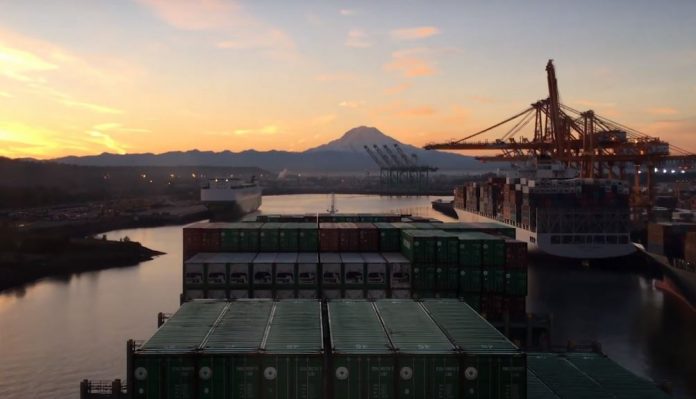Covid-19 has had a strong impact on the Northwest Seaport Alliance (NWSA), a marine cargo operating partnership of the ports of Tacoma and Seattle, massively affecting its container volumes.
The NWSA handled 264,133TEU in March 2020 as total container volumes dropped significantly by 21.6%, compared to March 2019. Full imports declined 28.2% while full exports decreased 8.6% year over year.
During the first quarter of 2020, there was a total of 32 void sailings due to a combination of lingering trade dispute and the pandemic, according to NWSA. Of the 32 canceled sailings, 19 were in March as unprecedented disruptions from the coronavirus rippled across the global supply chain.
The NWSA handled 788,882TEU year to date, a 15.4% decline from the same period last year. Full imports and exports declined by 19.3% and 4.9%, respectively.
The NWSA terminals remain open and operating, and the overall supply chain in the Pacific Northwest is fluid, said the alliance in its announcement. Efforts to mitigate the impacts of Covid-19 in the gateway are ongoing and include customized solutions to address specific needs, it added.
However, despite disruptions in the international supply chain, domestic cargo volumes between the NWSA and Alaska remain healthy, the NWSA reports. Alaska’s container volumes through March were up 0.9%. Overall year-to-date domestic container volumes decreased 0.9% dragged down by Hawaii, whose year-to-date volumes were down 8.2%.
At the same time, the NWSA has announced that breakbulk cargo volumes were down 11.9% year over year to 62,779 metric tons, while auto volumes year to date were 40,555 units, down 0.5% year over year.
Information regarding the NWSA’s Covid-19 response is updated regularly on the NWSA website.







